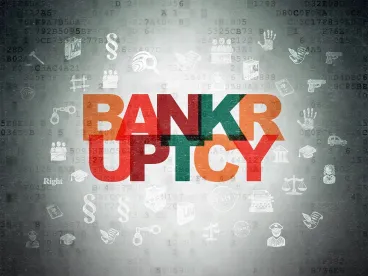In a recent decision (“Energy Future Holdings”) poised to have wide-reaching implications, the Third Circuit Court of Appeals reversed the decisions of the Bankruptcy and the District Courts to hold that a debtor cannot use a voluntary Chapter 11 bankruptcy filing to escape liability for a “make-whole” premium if express contractual language requires such payment when the borrower makes an optional redemption prior to a date certain. In so doing, the Third Circuit expressly rejected the reasoning of the Southern District of New York in the Momentive decisions, which reviewed similar language and held that no “make-whole” was due. The Momentive decisions are under advisement by the Second Circuit Court of Appeals, setting the stage for a potential circuit split.
In Energy Future Holdings, the debtor (“EFIH”) filed for bankruptcy for the explicit purpose of refinancing the debt at favorable interest rates (saving over $13 million per month) and avoiding its obligation to pay the make-whole premiums to both its first and second lien noteholders. Several weeks after the bankruptcy filing, EFIH executed this strategy and the noteholders objected. Both lower courts approved of EFIH’s actions, finding that the section of the indenture that accelerated the debt upon bankruptcy did not mention the make-whole payment, therefore none was due.
The Third Circuit took a different view of the two relevant provisions in the indentures: Section 3.07, which provided that at any time before December 1, 2015 the notes could be redeemed for 100% of the principal amount plus, inter alia, the make whole payment, and Section 6.02, which provided that upon a bankruptcy filing, all outstanding notes are due and payable immediately.
The Third Circuit found that these two provisions are not at odds with each other, and that New York law requires that that both provisions be given effect. The concept of “redemption” (as opposed to prepayment), under both New York and federal law, is not limited to only repayments of debt that predate its maturity; rather, redemption includes both pre-and post-maturity repayments of debt. The redemption by EFIH was optional, despite the automatic acceleration of the debt under Section 6.02, as (i) EFIH voluntarily filed for bankruptcy, (ii) EFIH could have reinstated the accelerated notes’ original maturity date, and (iii) EFIH redeemed the notes over the noteholders’ objections. To the Third Circuit, after reviewing the relevant indentures and the facts of the payments, “Redemptions, not prepayments, occurred here, they were at the election of EFIH, and they occurred before the respective dates [in the indentures].”
It remains to be seen whether the Second Circuit will agree with the analysis of the Third Circuit concerning almost identical operative sections of the respective indenture agreements, or whether it will uphold the lower courts’ decisions in Momentive. Under the Third Circuit’s holding, however, borrowers in that jurisdiction seeking the ability to avoid payment of the make whole upon acceleration of the debt need to make that expressly clear in the governing contract.




 />i
/>i
